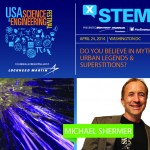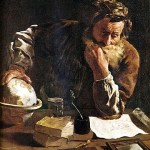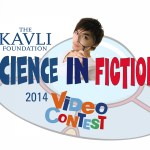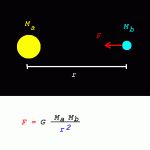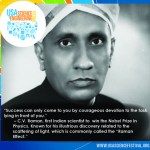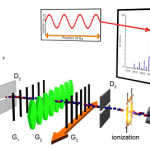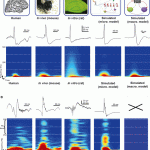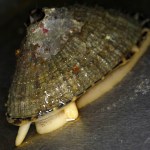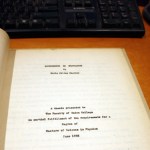Science
X-STEM - presented by Northrop Grumman Foundation and MedImmune - is an Extreme STEM symposium for elementary through high school students featuring interactive presentations by an exclusive group of visionaries who aim to empower and inspire kids about careers in science, technology, engineering and mathematics (STEM). These top STEM role models and industry leaders are sure to ignite your students’ curiosity through storytelling and live demonstrations.
Our spotlight on our X-STEM Speakers continues with Author and Publisher of Skeptic Magazine Dr. Michael…
One of SteelyKid's classmates came over for a couple hours today. After a bit, they got into the Magic School Bus science kit she got for her birthday, and decided to invent "new kinds of water." The "featured image" above shows her reinventing stock images... And doing a better job of it than this clown. If you need an image to illustrate your chemistry story, shoot me an email-- our rates are very reasonable.
(The sludgy brown mixture in the tube is water with soap, cinnamon, and cracked pepper floating in it. If you shake it back and forth a bit, the pepper does float around in a kind of…
From The Fly in the Cathedral, Brian Cathcart's history of the experiments that led up to the splitting of lithium nuclei by accelerated protons in the Cavendish Laboratory in 1932. One of the incidents along the way was the discovery of the neutron by James Chadwick, also in 1932. In describing Chadwick, who was Ernest Rutherford's assistant director in the years in question, Cathcart writes:
Chadwick's diffidence was familiar to all the students. [Thomas] Allibone was only one of several to describe taking a problem to the assistant director, explaining it at length and then leaving his…
I'm not talking about the tv show Eureka here, which was mostly silly fluff but not especially problematic. I'm talking about the famous anecdote about Archimedes of Syracuse, who supposedly realized the principle that bears his name when slipping into a bath, distracted by a problem he had been assigned by his king. On realizing the solution, he (supposedly) leaped out of the tub, yelling "Eureka!" (usually translated as "I found it!") and ran home naked, because he was so excited about the discovery that he forgot to dress.
As you know, I'm working on a book about the relationship between…
A couple of Mondays ago, I was at work and got the dreaded phone call from day care. "[The Pip]'s got conjunctivitis again. It's really bad, and he needs to go home right away."
Admittedly, this isn't the very worst phone call a parent could receive, but it's very much Not Good. Conjunctivitis means a trip to the doctor for antibiotics and eye drops (which The Pip HATES), and being sent home knocks out not only the rest of that day, but the entire next day, as he has to be on medication for at least 24 hours before he can return to day care.
The call came in around 10:00, and I had a class to…
By Stacy Jannis
Connecting bright young minds with the tools and techniques they need today is the first step towards developing our work force tomorrow. Businesses and government have issued a challenge to educators to help this next generation acquire the creative high-performance STEM skills they need to better transform the world. The evolution of learning technologies, combined with new frameworks for learning standards, will help equip and propel our students forward towards this goal.
So how could our "Science in Fiction" video contest help students practice and refine…
My trip into the office today was for the express purpose of posting this job ad:
We invite applications for Visiting Assistant Professor starting in September 2014. This position is available for up to three years, contingent on satisfactory performance. Applicants should have some teaching experience and a strong commitment to undergraduate education. Union is a highly selective, small (2200 students) liberal arts college with an engineering program, located in the Capital District of New York State, a region heavily engaged in science and R&D. The Department of Physics and Astronomy (…
I was very pleased last Friday, very pleased indeed. Given the normal subject matter of this blog, in which we face a seemingly unrelenting infiltration of pseudoscience and quackery into even the most hallowed halls of academic medicine, against which we seem to be fighting a mostly losing battle, having an opportunity to see such an excellent deconstruction of bad science and bad medicine in a large mainstream news outlet like USA TODAY is rare and gratifying. As you might recall, USA TODAY reporter Liz Szabo capped off a months-long investigation of Dr. Stanislaw Burzynski and his…
"I wouldn't know a spacetime continuum or a warp core breach if they got into bed with me." -Patrick Stewart
It's the end of the week once again, and so it's time for another Ask Ethan segment! There have been scores of good questions to choose from that were submitted this month alone (and you can submit yours here), but this week's comes from our reader garbulky, who asks:
Why does gravity decrease the further away you are from the object? I've read that it does decrease with distance squared but not why it does this.
This question seems so simple, and yet the answer -- to the…
You could call them child or teen prodigies – wunderkinds, who at remarkable young ages have already begun making their mark upon science and technology as innovators and visionaries. The USA Science & Engineering Festival not only applauds such young achievers, but is recruiting some of the best of them to serve on its new Youth Advisory Board.
The achievements of these recently-appointed board members will not only help us further excite, inspire and reach out to more students during Festival 2014, but will also call attention to the impressive cadre of young talent that is on the…
C.V. Raman – Physicist
First Indian scientist to win the Nobel Prize in Physics. Known for his pioneering work in the scattering of light, now commonly called the "Raman Effect"
In 1930, at a time of limited opportunities for Indian scientists, his groundbreaking work in optics and the scattering of light led him to become one of the most renowned scientists that India has ever produced!
C.V. Raman (born Chandrasekhara Venkata Raman in 1888 in Tiruchinapalli, Tamil Nadu, India) was raised in studious home environment. His father was a lecturer in mathematics and physics. C.V. would go on to…
I am crushingly busy right now-- massive book rewrites needed, papers to grade, etc.-- so I've actually been fairly happy with the general lack of topics that inspire a deep desire to blog. which of course, was promptly upset this morning, when a brief outburst of hating on Carl Sagan erupted on Twitter just as I was about to head to the gym.
The catalyst was the hoopla surrounding the donation of Sagan's papers to the Library of Congress, which though it isn't specifically cited was the cause of a flurry of Twitter discussion that I think led to Erin Podolak's anti-Sagan manifesto, which in…
Consider it your morning meditation. Or an opportunity to learn something about cell motility.
I don't understand how this happens. You've got a good academic position. You're bringing in reasonable amounts of grant money. You're publishing in Nature Genetics and Nature Structural and Molecular Biology. And you don't even understand the basic concepts in your field of study.
For instance, here's a press release titled "Cause of genetic disorder found in 'dark matter' of DNA".
For the first time, scientists have used new technology which analyses the whole genome to find the cause of a genetic disease in what was previously referred to as "junk DNA". Pancreatic agenesis results in…
I'm teaching Quantum Optics this term, and one of my students picked "Atom Optics" off the list of suggested paper topics. When he asked for pointers, I said "You should check out the diffraction stuff Markus Arndt's group does." And just like that, a paper from the Arndt group turns up from the Arxiv Blog...
This is apparently only recently posted to the arxiv, though the article in Physical Chemistry Chemical Physics claims to have been online since July. Since I never get tired of talking about this, let's talk about this one, too.
So, what's this one about, then? In a lot of ways, it's…
Last week, everyone's favorite woo-meister, the man whose woo is so strong that I even coined a term for it way back in the early mists of time (at least as far as this blog is concerned), was woo-fully whining about all those allegedly nasty skeptics on Wikipedia. Yes, Deepak Chopra was clutching his pearls and getting all huffy because, according to him, a group of skeptics known as the Guerilla Skeptics was actually applying science and reason to the Wikipedia entry for his good buddy Rupert Sheldrake. The only problem was, he totally missed the target in that the Guerilla Skeptics…
"My idea of perfect happiness is a healthy family, peace between nations, and all the critics die." -David Mamet
As a theorist in physics, most of my research time is spent looking for errors in painstaking calculations, writing and running simulation code, and trying desperately to connect some very abstract concepts to potential observables in either experiments or the Universe.
But for experimentalists, the key difficulty is always some variation on one unifying theme: getting good data. That's why this weekend, I'm proud to bring you a fantastic takeoff of Daft Punk's Get Lucky by…
I am not a fan of the convergent evolution argument for humanoid aliens. I can well believe that it's likely that intelligent aliens exist out there in the universe, but I'm not even going to try to predict what they look like: there are too many alternative paths that are possible. But for some reason, many people like to insist that it's reasonably likely that they'd resemble us in general, if not in detail, and they'll then go on to extrapolate that behaviorally and culturally they'll share many properties with us. Usually, as with Simon Conway Morris and now George Dvorsky, this argument…
Roland Deschane
Science is always working a tough room. It's inherently progressive — we're constantly achieving incremental improvements in our understanding, with occasional lurches forward…and sometimes sudden lurches backward, when we realize that we got something wrong. We're performing for a crowd, the general citizenry and most importantly, the funding agencies, that expect us to fix problems and make the world better, and they're a fickle bunch who will turn on us with disdain if we don't keep delivering new medical therapies and tinier electronics and more spectacular robots…
One of the interesting things about the pile of old theses we found in the basement is the opportunity to look at things that nobody believes any more. Past installments of the Old Thesis Club have shown people fumbling toward an understanding of quantum physics via electron scattering and spectroscopy, but in both of those cases, they were working toward a correct theory. In this edition, we look at an investigation of a theory that's been wholly discredited.
The general category of the experiment isn't problematic-- it's basically a test of the equivalence principle, the idea that the…
